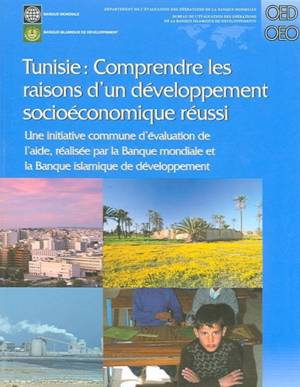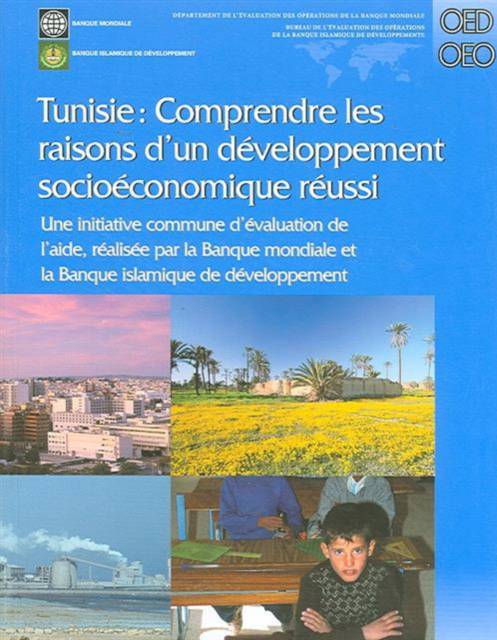
- Afhalen na 1 uur in een winkel met voorraad
- Gratis thuislevering in België vanaf € 30
- Ruim aanbod met 7 miljoen producten
- Afhalen na 1 uur in een winkel met voorraad
- Gratis thuislevering in België vanaf € 30
- Ruim aanbod met 7 miljoen producten
Zoeken
€ 19,45
+ 38 punten
Omschrijving
Tunisia has successfully shifted from resource-based exports dominated by oil and gas to manufactures and services. Real GDP growth has been consistently rising and Tunisians today enjoy more than two-and-a-half times the real incomes that their parents had thirty years ago. Rapid growth made possible a remarkable improvement in social indicators and a decline in the poverty rate from 40 percent in 1970 to 4 percent in 2000; with the remaining poverty predominately rural. The Bank's strategy since 1990 has been to support macroeconomic stabilization, pro-market structural reforms to foster growth, and social programs as well as human development. Despite significant development progress and the satisfactory outcome of the Bank's assistance program, shortfalls in some areas, combined with the more competitive environment that Tunisia will likely face in the future, pose risks to sustaining its remarkable development performance. This evaluation recommends that the Bank should continue to support improving the environment for private sector development and enhancing competitiveness, as the country seeks to integrate more into the global economy. Future Bank programs should also help strengthen rural institutions to support efficient output and input markets (for example, land and rural finance) while maintaining social and political stability through better targeted safety nets. Finally, the Bank should also fill the gaps in core diagnostic economic and sector work by completing a public expenditure review, with the aim to help build capacity to prioritize public spending and provide the basis for measures to efficiently address education expansion. This Country Assistance Evaluation was prepared in collaboration with the Islamic Development Bank.
Specificaties
Betrokkenen
- Auteur(s):
- Uitgeverij:
Inhoud
- Aantal bladzijden:
- 120
- Taal:
- Frans
- Reeks:
Eigenschappen
- Productcode (EAN):
- 9780821362235
- Verschijningsdatum:
- 8/06/2005
- Uitvoering:
- Paperback
- Formaat:
- Trade paperback (VS)
- Afmetingen:
- 214 mm x 276 mm
- Gewicht:
- 340 g

Alleen bij Standaard Boekhandel
+ 38 punten op je klantenkaart van Standaard Boekhandel
Beoordelingen
We publiceren alleen reviews die voldoen aan de voorwaarden voor reviews. Bekijk onze voorwaarden voor reviews.











